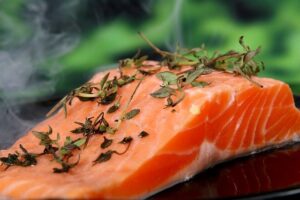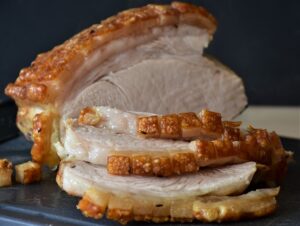Introduction
String cheese is a popular snack known for its convenience and delicious taste. It is a type of cheese that is formed into long, thin strings, making it easy to eat and fun to pull apart. One common question that arises is how much protein is in string cheese. In this article, we will explore the protein content of string cheese and provide you with an in-depth understanding of its nutritional value.
Protein Content in String Cheese
String cheese is primarily made from mozzarella cheese, which is known for its high protein content. On average, a single serving of string cheese, which is typically one ounce or 28 grams, contains about 6 grams of protein. This protein content can vary slightly depending on the brand and type of string cheese you choose.
Protein is an essential nutrient that plays a vital role in various bodily functions. It is necessary for building and repairing tissues, supporting immune function, and producing enzymes and hormones. Including protein-rich foods like string cheese in your diet can help you meet your daily protein requirements.
Benefits of Protein
Protein is often referred to as the building block of life due to its crucial role in the body. Here are some of the benefits of consuming adequate protein:
Muscle Growth and Repair: Protein is essential for muscle growth and repair. It provides the necessary amino acids that help rebuild and strengthen muscle tissues after exercise or injury. Including protein-rich foods like string cheese in your diet can support muscle development and recovery.
Weight Management: Protein is known to be more satiating than carbohydrates or fats. Including protein in your meals and snacks can help you feel fuller for longer, reducing the chances of overeating and aiding in weight management.
Blood Sugar Control: Protein has a minimal impact on blood sugar levels compared to carbohydrates. Consuming protein-rich foods like string cheese can help stabilize blood sugar levels and prevent spikes and crashes, making it beneficial for individuals with diabetes or those looking to manage their blood sugar levels.
Bone Health: Protein is essential for maintaining strong and healthy bones. It plays a role in calcium absorption and helps prevent bone loss. Adequate protein intake, along with other bone-building nutrients, can contribute to optimal bone health.
Other Nutritional Considerations
While string cheese is a good source of protein, it is also important to consider its overall nutritional profile. String cheese is relatively high in saturated fat and sodium. Therefore, it is recommended to consume it in moderation as part of a balanced diet.
It is worth noting that there are variations in the nutritional content of different brands and types of string cheese. Some brands offer reduced-fat or low-sodium options, which may be more suitable for individuals with specific dietary needs or preferences. Reading the nutrition label and ingredient list can help you make informed choices about the string cheese you consume.
Conclusion
String cheese is a convenient and tasty snack that provides a good amount of protein. With approximately 6 grams of protein per one-ounce serving, it can contribute to your daily protein needs. However, it is important to consider the overall nutritional profile of string cheese, including its saturated fat and sodium content. Moderation and choosing healthier options can help you enjoy the benefits of string cheese while maintaining a balanced diet.
References
– Mayo Clinic: www.mayoclinic.org
– USDA FoodData Central: fdc.nal.usda.gov













